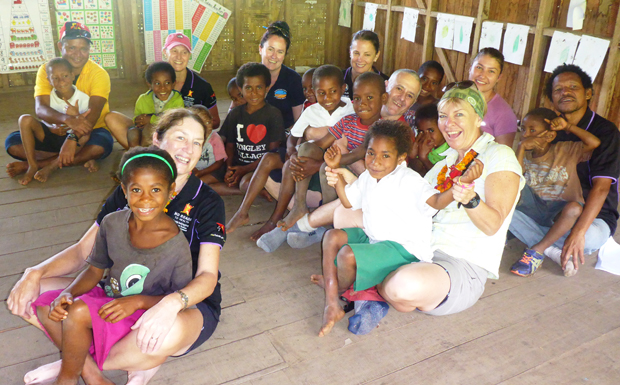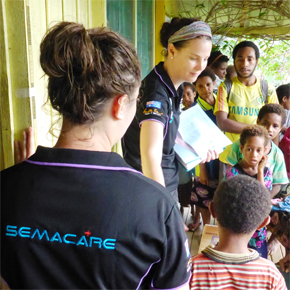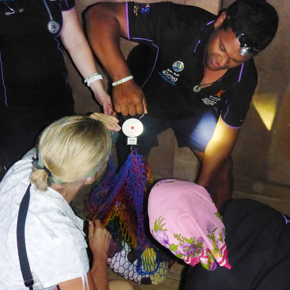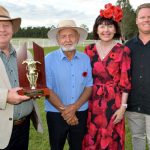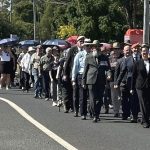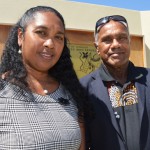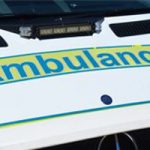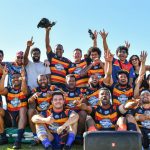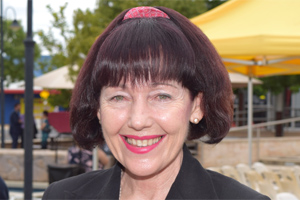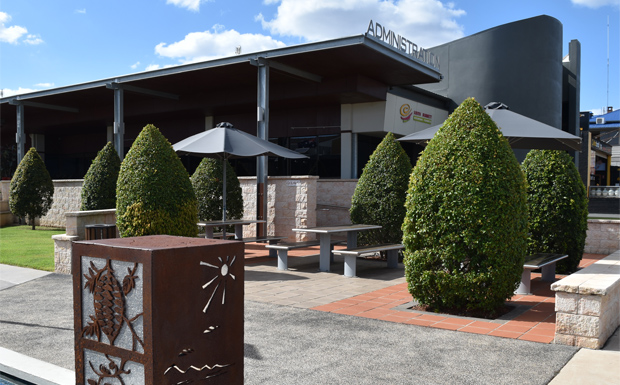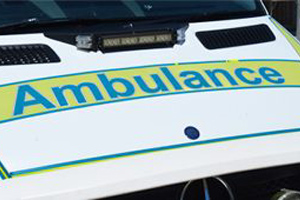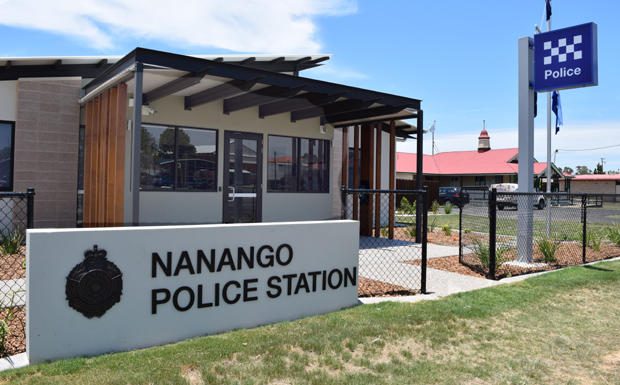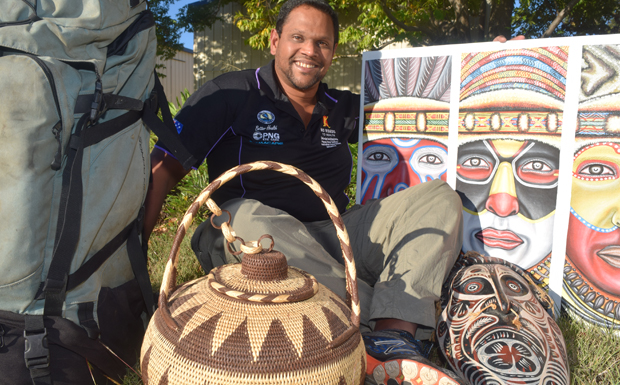
May 23, 2015
Many Australians dream of “doing” the historic Kokoda Track in Papua New Guinea … Kingaroy resident Peter Ranasinghe has not only completed the arduous trek once, he has done it six times!
He doesn’t have an obsession with fitness, but it probably could be said he now has an obsession with PNG.
Peter fell in love with the place on his first visit.
“In 2010 I walked the Track and I found it to be an extremely powerful place. When I came back I wanted to take other trekkers back there, not only for the military history and the physical challenge, but to experience the local culture as well,” he said.
Interested in becoming a trekking guide, he discovered a Melbourne-based company that did regular Kokoda treks, “No Roads Expeditions”, and then learned the group had a motto that wherever they go, they must give back.
This had led to No Roads Expeditions creating “No Roads To Health” and “No Roads To Education” and the establishment of schools in the countries that they trekked through.
Peter was quickly sold on the concept.
“It’s all about going back to the places we visit and seeing if we can be of help,” Peter said.
On Peter’s last visit to the Kokoda Track – which coincided with Anzac Day – he was accompanied by a small team of health professionals, including a doctor, nurses and physiotherapist as part of a “No Roads To Health” expedition.
As they walked the track, they visited each of the five villages along the way that have basic medical clinics.
Peter explained that these clinics were established many years ago – some by Rotary – and were staffed by a community health worker. However, the workers rarely have any professional medical back-up or mentoring.
This was Peter’s first “No Roads To Health” trek.
The team members walked to each village, arriving about 1:30pm, and then ran a clinic late into the night.
The next morning, they saw more patients before hitting the track for another four or five hours walking to get to the next village.
And did the trekkers mind having to work so hard?
“They loved it!” Peter said. “Everybody in that group has indicated they would like to come back and do it again.”
He said the reception the team received at each stop made them understand they were really making a difference in people’s lives, something they possibly don’t experience that often back in Australia.
Peter – who is a diesel fitter by trade – also unexpectedly found his skills came in handy on the trip, when he was called upon to repair a generator at one of the villages.
There is a great need for medical care in PNG.
“One in 12 children die before the age of five, including at birth, and one in 20 women die in childbirth. More than 10,000 women and babies die during childbirth every year,” Peter said.
The “No Roads To Health” team brings along their own supplies – sponsored by Semacare – and medical equipment, which is carried by hired porters. The porters also act as interpreters at the clinics.
“The local porters that we have are amazing people,” Peter said. “They are very kind, very helpful and so appreciative of the health care group coming through.”
* * *
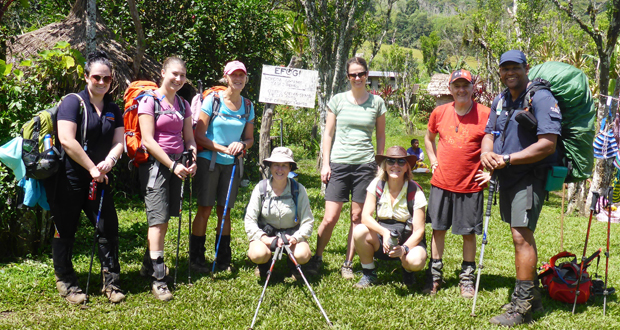
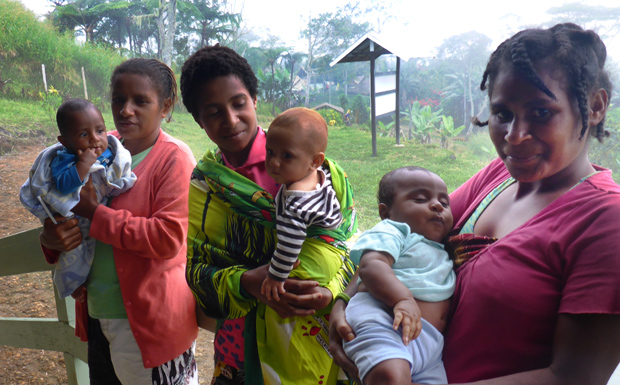
Peter said No Roads Expeditions was now considering running five “No Roads To Health” treks each year.
“The program has had very good acceptance from the PNG Government and from the Kokoda Track Authority,” Peter said.
“An Australian expat nurse came along to assess our clinical work and how we try to mentor the health workers. The report that came back was very positive.”
And now that the model had been established and proven to be successful, No Roads Expeditions may extend the idea to other countries where they trek.
“And we are definitely looking for medical professionals in different fields (to become involved),” Peter said. “For example, dentists. There is a dental chair at one of the clinics but all they are doing is extractions. Oral health in remote PNG is a big issue.”
The “No Roads To Education” part of the program has been running for longer and so far has built two schools in PNG, including Kagi Elementary School in “The Compound” near Port Moresby.
* * *
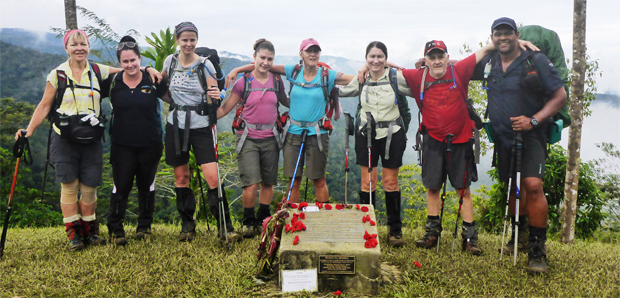
How did Peter, a diesel fitter at Meandu Mine and with Sri Lankan heritage, end up so fascinated with Kokoda?
As an Air Force Cadet growing up in Cairns, he became close friends with a fellow cadet whose uncle had died at Kokoda.
“As young kids we all said, ‘we have to walk it to honour your uncle’,” he said.
But time slipped by and it wasn’t until 2010 that the mates managed to fulfil their wish.
“We did a memorial service at his grave,” Peter said.
The Kokoda Track had an immediate effect on Peter.
“You understand what the young Diggers went through,” he said.
“People get to conquer the track and to conquer themselves.”
That’s when Peter fell in love with PNG.
- External link: Peter’s report in his own words
